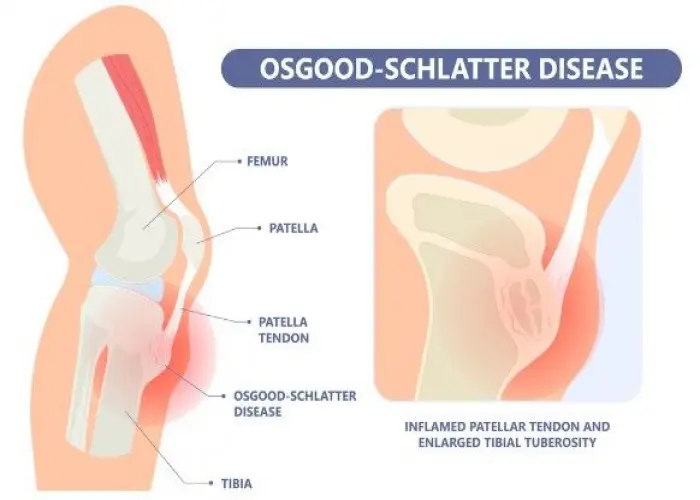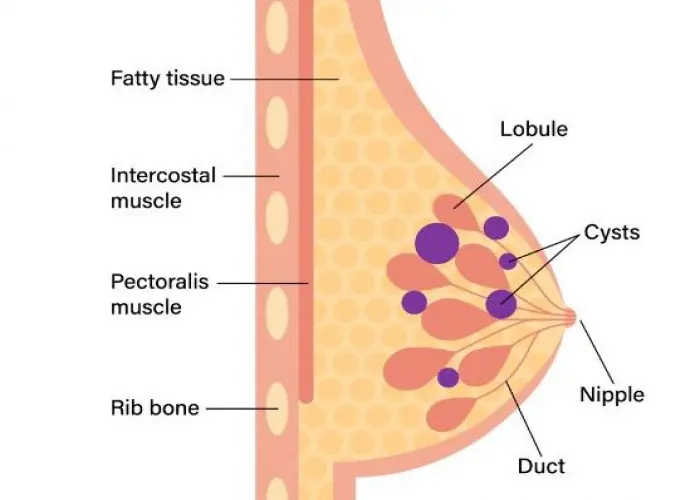 Welcome
Welcome
“May all be happy, may all be healed, may all be at peace and may no one ever suffer."
Multiple sclerosis

Multiple sclerosis (MS) is a chronic autoimmune disorder that affects the central nervous system (CNS), which includes the brain, spinal cord, and optic nerves. In MS, the immune system mistakenly attacks the myelin sheath, which is the protective covering around nerve fibers in the CNS, causing inflammation and damage. Over time, this damage can lead to a range of symptoms, including numbness or tingling in the limbs, muscle weakness, difficulty with coordination and balance, vision problems, and cognitive changes.
The exact cause of MS is not known, but it is thought to be the result of a combination of genetic and environmental factors. Some factors that may increase the risk of developing MS include family history, certain viral infections, smoking, and low levels of vitamin D.
There are several types of MS, including relapsing-remitting MS (RRMS), primary progressive MS (PPMS), secondary progressive MS (SPMS), and progressive-relapsing MS (PRMS). The type of MS a person has can affect the course of the disease and the effectiveness of treatments.
There is no cure for MS, but several medications and therapies are available to manage symptoms, slow the progression of the disease, and improve quality of life. Treatment options may include disease-modifying therapies, corticosteroids to reduce inflammation, physical therapy to improve mobility and balance, and medications to manage specific symptoms such as muscle spasms or fatigue.
People with MS typically require ongoing care and monitoring by a team of healthcare professionals, including neurologists, rehabilitation specialists, and mental health professionals. Regular follow-up appointments and imaging tests are important to monitor disease progression and adjust treatment as needed.
Research Papers
Disease Signs and Symptoms
- Numbness
- Tremor, lack of coordination or unsteady gait
- Dizziness (vertigo)
- Fatigue (Tiredness)
- Slurred speech
- Blurred vision of eye
- Double vision (diplopia)
- Tremor of hands or fingers
- Weakness
- Tingling or pain in parts of the body
Disease Causes
Multiple sclerosis
The cause of multiple sclerosis is unknown. It's considered an autoimmune disease in which the body's immune system attacks its own tissues. In the case of MS, this immune system malfunction destroys the fatty substance that coats and protects nerve fibers in the brain and spinal cord (myelin).
Myelin can be compared to the insulation coating on electrical wires. When the protective myelin is damaged and the nerve fiber is exposed, the messages that travel along that nerve fiber may be slowed or blocked.
It isn't clear why MS develops in some people and not others. A combination of genetics and environmental factors appears to be responsible.
Disease Prevents
Disease Treatments
There is no cure for multiple sclerosis. Treatment typically focuses on speeding recovery from attacks, slowing the progression of the disease and managing MS symptoms. Some people have such mild symptoms that no treatment is necessary.
Treatments for MS attacks
- Corticosteroids, such as oral prednisone and intravenous methylprednisolone, are prescribed to reduce nerve inflammation. Side effects may include insomnia, increased blood pressure, increased blood glucose levels, mood swings and fluid retention.
- Plasma exchange (plasmapheresis). The liquid portion of part of your blood (plasma) is removed and separated from your blood cells. The blood cells are then mixed with a protein solution (albumin) and put back into your body. Plasma exchange may be used if your symptoms are new, severe and haven't responded to steroids.
Treatments to modify progression
For primary-progressive MS, ocrelizumab (Ocrevus) is the only FDA-approved disease-modifying therapy (DMT). Those who receive this treatment are slightly less likely to progress than those who are untreated.
For relapsing-remitting MS, several disease-modifying therapies are available.
Much of the immune response associated with MS occurs in the early stages of the disease. Aggressive treatment with these medications as early as possible can lower the relapse rate, slow the formation of new lesions, and potentially reduce risk of brain atrophy and disability accumulation.
Many of the disease-modifying therapies used to treat MS carry significant health risks. Selecting the right therapy for you will depend on careful consideration of many factors, including duration and severity of disease, effectiveness of previous MS treatments, other health issues, cost, and child-bearing status.
Treatment options for relapsing-remitting MS include injectable and oral medications.
Injectable treatments include:
- Interferon beta medications.These drugs are among the most commonly prescribed medications to treat MS. They are injected under the skin or into muscle and can reduce the frequency and severity of relapses.
- Side effects of interferons may include flu-like symptoms and injection-site reactions.
- You'll need blood tests to monitor your liver enzymes because liver damage is a possible side effect of interferon use. People taking interferons may develop neutralizing antibodies that can reduce drug effectiveness.
- Glatiramer acetate (Copaxone, Glatopa). This medication may help block your immune system's attack on myelin and must be injected beneath the skin. Side effects may include skin irritation at the injection site.
Oral treatments include:
- Fingolimod (Gilenya). This once-daily oral medication reduces relapse rate.
- You'll need to have your heart rate and blood pressure monitored for six hours after the first dose because your heartbeat may be slowed. Other side effects include rare serious infections, headaches, high blood pressure and blurred vision.
- Dimethyl fumarate (Tecfidera). This twice-daily oral medication can reduce relapses. Side effects may include flushing, diarrhea, nausea and lowered white blood cell count. This drug requires blood test monitoring on a regular basis.
- Diroximel fumarate (Vumerity). This twice-daily capsule is similar to dimethyl fumarate but typically causes fewer side effects. It's approved for the treatment of relapsing forms of MS.
- Teriflunomide (Aubagio). This once-daily oral medication can reduce relapse rate. Teriflunomide can cause liver damage, hair loss and other side effects. This drug is associated with birth defects when taken by both men and women. Therefore, use contraception when taking this medication and for up to two years afterward. Couples who wish to become pregnant should talk to their doctor about ways to speed elimination of the drug from the body. This drug requires blood test monitoring in a regular basis.
- Siponimod (Mayzent). Research shows that this once-daily oral medication can reduce relapse rate and help slow progression of MS. It's also approved for secondary-progressive MS. Possible side effects include viral infections, liver problems and low white blood cell count. Other possible side effects include changes in heart rate, headaches and vision problems. Siponimod is harmful to a developing fetus, so women who may become pregnant should use contraception when taking this medication and for 10 days after stopping the medication. Some might need to have the heart rate and blood pressure monitored for six hours after the first dose. This drug requires blood test monitoring on a regular basis
- Cladribine (Mavenclad). This medication is generally prescribed as second line treatment for those with relapsing-remitting MS. It was also approved for secondary-progressive MS. It is given in two treatment courses, spread over a two-week period, over the course of two years. Side effects include upper respiratory infections, headaches, tumors, serious infections and reduced levels of white blood cells. People who have active chronic infections or cancer should not take this drug, nor should women who are pregnant or breast-feeding. Men and women should use contraception when taking this medication and for the following six months. You may need monitoring with blood tests while taking cladribine.
Infusion treatments include:
- Ocrelizumab (Ocrevus). This humanized monoclonal antibody medication is the only DMT approved by the FDA to treat both the relapse-remitting and primary-progressive forms of MS. Clinical trials showed that it reduced relapse rate in relapsing disease and slowed worsening of disability in both forms of the disease.
- Ocrelizumab is given via an intravenous infusion by a medical professional. Infusion-related side effects may include irritation at the injection site, low blood pressure, a fever and nausea, among others. Some people may not be able to take ocrelizumab, including those with a hepatitis B infection. Ocrelizumab may also increase the risk of infections and some types of cancer, particularly breast cancer.
- Natalizumab (Tysabri). This medication is designed to block the movement of potentially damaging immune cells from your bloodstream to your brain and spinal cord. It may be considered a first line treatment for some people with severe MS or as a second line treatment in others.
- This medication increases the risk of a potentially serious viral infection of the brain called progressive multifocal leukoencephalopathy (PML) in people who are positive for antibodies to the causative agent of PML JC virus. People who don't have the antibodies have extremely low risk of PML.
- Alemtuzumab (Campath, Lemtrada). This drug helps reduce relapses of MS by targeting a protein on the surface of immune cells and depleting white blood cells. This effect can limit potential nerve damage caused by the white blood cells. But it also increases the risk of infections and autoimmune disorders, including a high risk of thyroid autoimmune diseases and rare immune mediated kidney disease.
- Treatment with alemtuzumab involves five consecutive days of drug infusions followed by another three days of infusions a year later. Infusion reactions are common with alemtuzumab.
- The drug is only available from registered providers, and people treated with the drug must be registered in a special drug safety monitoring program. Alemtuzumab is usually recommended for those with aggressive MS or as second line treatment for patients who failed another MS medication.
Disease Diagnoses
Disease Allopathic Generics
Disease Ayurvedic Generics
Disease Homeopathic Generics
Disease yoga
Multiple sclerosis and Learn More about Diseases

Throat cancer

REM sleep behavior disorder

Achilles tendon rupture

Growth plate fractures

Meningioma

Snoring

Fibrocystic breasts

Seborrheic dermatitis
Multiple sclerosis, একাধিক স্ক্লেরোসিস
To be happy, beautiful, healthy, wealthy, hale and long-lived stay with DM3S.
